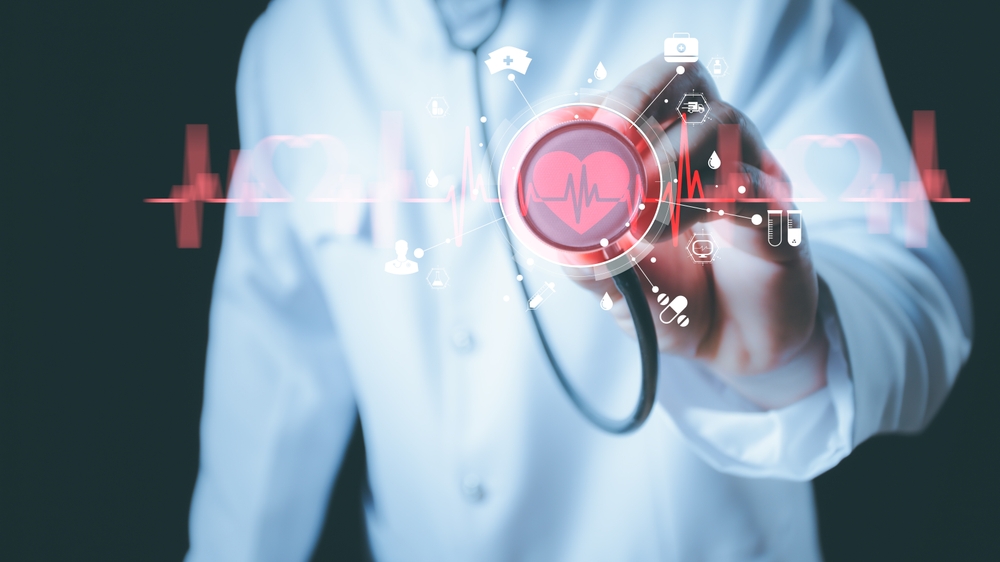The term “cardiovascular disease” often brings to mind a heart attack. While that is a major concern, the reality is that cardiovascular disease is a broad term for a range of conditions affecting the heart and blood vessels. Understanding this diverse group of illnesses is the first step toward prevention and effective management. This guide provides a clear checklist of the 10 most common cardiovascular diseases. By familiarizing yourself with this list of cardiovascular diseases, you can better recognize potential warning signs and know when to seek professional medical advice. Get a consultation with the best cardiologists in Brooklyn.
Your Checklist: The 10 Most Common Cardiovascular Diseases
Cardiovascular diseases are the leading cause of death globally, but many of them are preventable or treatable, especially with early detection. Here is a breakdown of the conditions that most frequently affect the heart and circulatory system.
This is the most common type of heart disease. CAD occurs when the major blood vessels that supply the heart with blood, oxygen, and nutrients (the coronary arteries) become damaged or diseased. Cholesterol-containing deposits (plaque) in your arteries and inflammation are usually to blame. When plaque builds up, it narrows the arteries, decreasing blood flow to your heart.
Often called the “silent killer” because it has no symptoms, hypertension is a condition in which the long-term force of the blood against your artery walls is high enough that it may eventually cause health problems, such as heart disease. The more blood your heart pumps and the narrower your arteries, the higher your blood pressure.
Contrary to its name, heart failure doesn’t mean the heart has stopped working. It means the heart muscle isn’t pumping blood as well as it should be. Certain conditions, such as narrowed arteries in your heart (CAD) or high blood pressure, gradually leave your heart too weak or stiff to fill and pump efficiently.
A stroke occurs when the blood supply to part of your brain is interrupted or reduced, preventing brain tissue from getting oxygen and nutrients. Brain cells begin to die in minutes. A stroke is a medical emergency, and prompt treatment is critical. The most common type is an ischemic stroke, caused by a blocked artery.
This refers to an improper beating of the heart, whether it’s irregular, too fast (tachycardia), or too slow (bradycardia). While many arrhythmias are harmless, some can cause bothersome—and sometimes life-threatening—signs and symptoms. A common example is atrial fibrillation (AFib), which can increase the risk of stroke.
Your heart has four valves that keep blood flowing in the correct direction. In valvular heart disease, one or more of the valves don’t work properly. They may not open fully (stenosis) or may not close properly, allowing blood to leak backward (regurgitation or insufficiency). A cardiologist can often detect this with a stethoscope.
PAD is a circulatory problem in which narrowed arteries reduce blood flow to your limbs. When you develop PAD, your extremities—usually your legs—don’t receive enough blood flow to keep up with demand. This causes symptoms, most notably leg pain when walking (claudication).
- Aortic Aneurysm
The aorta is the main artery that carries blood from your heart to the rest of your body. An aneurysm is a bulge or ballooning in the wall of a blood vessel. An aortic aneurysm can dissect or rupture, causing life-threatening internal bleeding.
This is a general term for a defect in the structure of the heart and great vessels that is present at birth. The defects can involve the walls of the heart, the valves of the heart, and the arteries and veins near the heart. Some are simple and require no treatment, while others are complex and require surgery.
Cardiomyopathy is a disease of the heart muscle that makes it harder for your heart to pump blood to the rest of your body. It can lead to heart failure. There are different types, including dilated, hypertrophic, and restrictive cardiomyopathy, each affecting the heart muscle differently.
Recognizing the symptoms associated with this list of cardiovascular diseases is crucial. If you experience chest pain, shortness of breath, dizziness, unexplained fatigue, or swelling in your legs, it’s time to see a doctor.
A primary care physician is a great starting point, but for a specialized diagnosis and treatment plan, you may need to see a cardiologist. These heart specialists have the expertise and tools to accurately diagnose your condition and recommend the best course of action. A dedicated cardiology clinic in Brooklyn can provide comprehensive testing, from electrocardiograms (ECGs) to stress tests and advanced imaging.
Knowing about the 10 most common cardiovascular diseases empowers you to take charge of your health. Many of these conditions share common risk factors like high blood pressure, high cholesterol, smoking, and diabetes. By adopting a heart-healthy lifestyle and getting regular check-ups, you can significantly reduce your risk. If you have any concerns about your heart health or your family history, don’t hesitate to book an appointment at a cardiology clinic in Brooklyn or with a local specialist for a professional evaluation. For any cardiovascular problems, call us on +1 718 367 2555. The Cardiologists at Doral Health & Wellness consistently have outstanding patient satisfaction ratings. If you need help, register your information at https://yuz88hfiyh7.typeform.com/Doralintake. The professionals at Doral Health & Wellness Cardiology Brooklyn can improve your health and quality of life because of their vast training and experience. New Yorkers can get the greatest medical, surgical, and cardiovascular care at Doral Health & Wellness Brooklyn. Visit us at 1797 Pitkin Avenue, Brooklyn, NY 11212.






